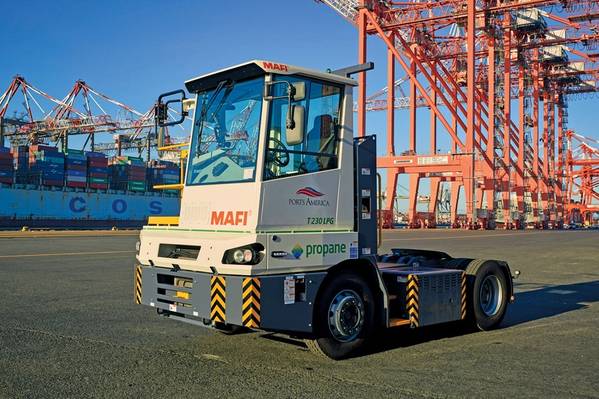
As concern for energy stability surges nationwide, the Propane Education & Research Council (PERC) celebrates National Propane Day by encouraging material handling professionals to explore propane as a reliable, on-site energy solution that can support greater peace of mind in uncertain times.October 7 marks the fourth annual National Propane Day, and this year’s theme, “Prepare with Propane,” is a reminder of propane’s dependability when other systems may fail…

With lower emissions and proven reliability, it’s the ready-now solution for cleaner port operations.As demand for cleaner energy grows, port authorities and terminal operators face the challenge of finding environmentally friendly options without increasing budgets or sacrificing productivity…

With lower emissions and proven reliability, it’s the ready-now solution for cleaner port operationsAs demand for cleaner energy grows, port authorities and terminal operators face the challenge of finding environmentally friendly options without increasing budgets or sacrificing productivity…

As winter comes into full swing, the Propane Education & Research Council (PERC) is reminding material handling professionals to take proactive steps to ensure propane-powered equipment is ready for the colder months ahead.“Ports, warehouses…

From EV charging to shore power, propane infrastructure offers a suite of capabilitiesEnergy reliability is critical at ports, and while propane power has traditionally been associated with equipment like forklifts and terminal tractors, its role at ports is rapidly expanding into new areas…
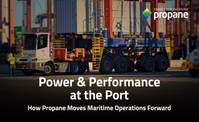
Ports across the U.S. are learning a critical lesson: depending solely on government grants or an increasingly unstable electric grid is no longer enough to keep operations running smoothly. There’s a smarter, more cost-effective solution already proving its worth on the ground - propane…
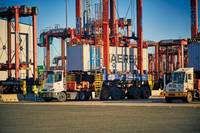
As U.S. ports face their annual surge in pre-holiday inventory arrivals, many are relying on propane-powered equipment to stay efficient, resilient, and cost effective. This surge in port activity comes just as the U.S. Department of Transportation…
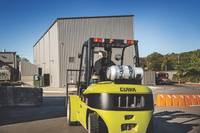
This Earth Day, the Propane Education & Research Council (PERC) is highlighting propane and renewable propane as key solutions for cutting emissions and delivering reliable energy amid global sustainability efforts. As a safe, clean, and readily…
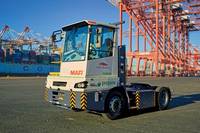
How propane offers unmatched reliability and resiliency when severe weather strikesPorts are critical hubs for global trade and shipping logistics, and they can’t afford to slow down due to extreme weather events. Especially in the Northern U…
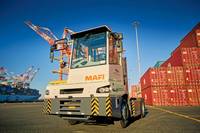
Ports can’t afford to slow down, and stricter environmental regulations and emissions standards are pushing port authorities to balance operational efficiency with reducing their carbon footprint. By replacing traditional gas and diesel as an energy source…
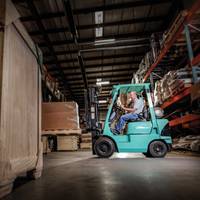
In celebration of Clean Energy Month, the Propane Education & Research Council (PERC) has highlighted propane’s role as a clean energy source for material handling applications.Propane produces 52% fewer greenhouse gas emissions than an equivalent amount of U…
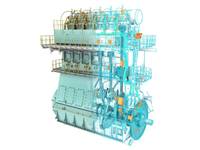
WinGD introduced an option for its X-DF-A ammonia-fuelled engines to be delivered capable of running on liquified petroleum gas (LPG), a ‘pre-fit’ solution that could be of interest to vessels under construction for the anticipated global trade in ammonia…
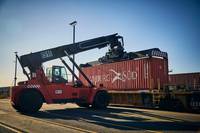
Ports can’t afford to slow down, and stricter environmental regulations and emissions standards are pushing port authorities to balance operational efficiency with reducing their carbon footprint. By replacing traditional gas and diesel as an energy source…
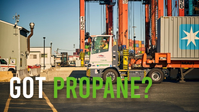
As maritime, port and terminal operators embark on the path toward a reduced emission future, the Propane Education & Research Council’s (PERC) Jim Bunsey states the case for adding propane to the mix: American-sources, plentiful and increasingly renewable and ‘green’.
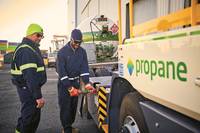
Emissions regulations continue to become more stringent for ports, pushing more port authorities and terminal operators away from diesel and gasoline and toward alternative energy sources like propane. Capable of powering essential port applications like yard tractors…


